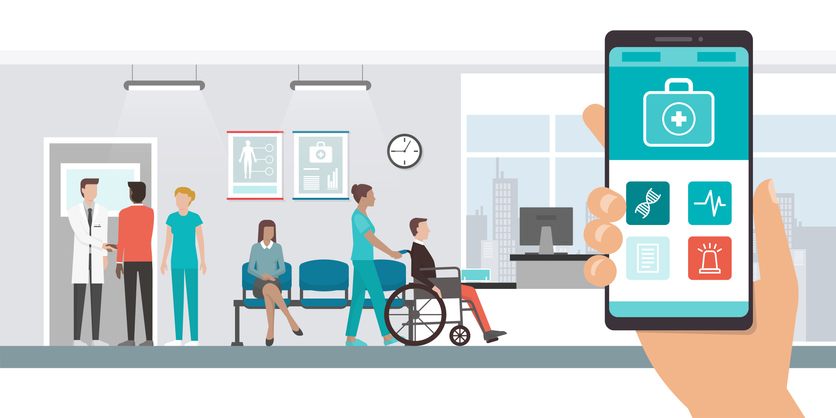The SCOTUS decision regarding the ACA will bring millions of more covered lives into the healthcare system. There is no debate that this will significantly increase the cost of healthcare. This creates a more pressing need for cost-saving technologies. In a previous post I discussed ways in which the SCOTUS decision on healthcare reform would affect mHealth in general terms. I think it is worthwhile examining areas of healthcare technology which will potentially provide the biggest cost-saving impact and thereby derive the most benefit from the new reality.
1. Informatics. The collection and processing of data into project-driven objectives will be critical to drive revenue at an institutional level. This will involve supply chain requirements, outcomes-based reimbursement management programs, formulation of discharge planning and institution of home health solutions. This type of IT will provide the biggest bang for the buck, but it will likely not be a priority to most hospitals in the near future. Meeting other IT mandates and obtaining trained personnel are presently their biggest concerns.

With the Rise of AI, What IP Disputes in Healthcare Are Likely to Emerge?
Munck Wilson Mandala Partner Greg Howison shared his perspective on some of the legal ramifications around AI, IP, connected devices and the data they generate, in response to emailed questions.
2. Mobile apps. The demand for mobile apps in both the consumer and healthcare arenas has been rising independently of the outcome of the SCOTUS decision. However, the decision will markedly increase the demand for this technology because of the relative increase in the provider shortage to come. People will be looking for alternatives to long appointment intervals and a paradoxical decreased access to care arising from limited healthcare resources. Initiatives to certify and facilitate prescribing of apps to patients are underway.
3. Telemedicine. Telemedicine is experiencing significant gains over barriers to adoption. It has a longer history than other technologies, is closest to what patients remember as an interpersonal experience, and has made strides in the regulatory arena regarding physician licensing and reimbursement. Large scale adoption by pharmacy chains, state Medicaid agencies, and hospitals are contributing to this growth already. The shortage of providers as a result of the ACA will further fuel use of telemedicine.
4. Peer to peer healthcare social networking. The Internet is the primary source of searching for health related information today. Social networking sites focusing on health, wellness, and medicine are becoming extremely popular. The importance of these social networks cannot be overestimated. Crowdsourcing of information about specific diseases, medications, problems of patients and caregivers in navigating the system, and clinical studies will become invaluable. Peer to peer interactions themselves decrease stress and frustration, possibly resulting in improvement of provider-patient relationships.
5. Remote patient monitoring. More patients seeking care because they will be insured means more patients with chronic diseases seeking care. Remote patient monitoring, whether it encompasses text messaging or sensors delivering actionable alerts of vital signs, glucose levels or other information has promise to lead to more care at home. This can decrease incidences of hospital-acquired infection and death from institutional medication and other mishaps. It may also increase medication adherence.
While the SCOTUS decision will not directly affect technology, the ramifications of it will provide a more pressing impetus to develop, approve, and adopt it.














